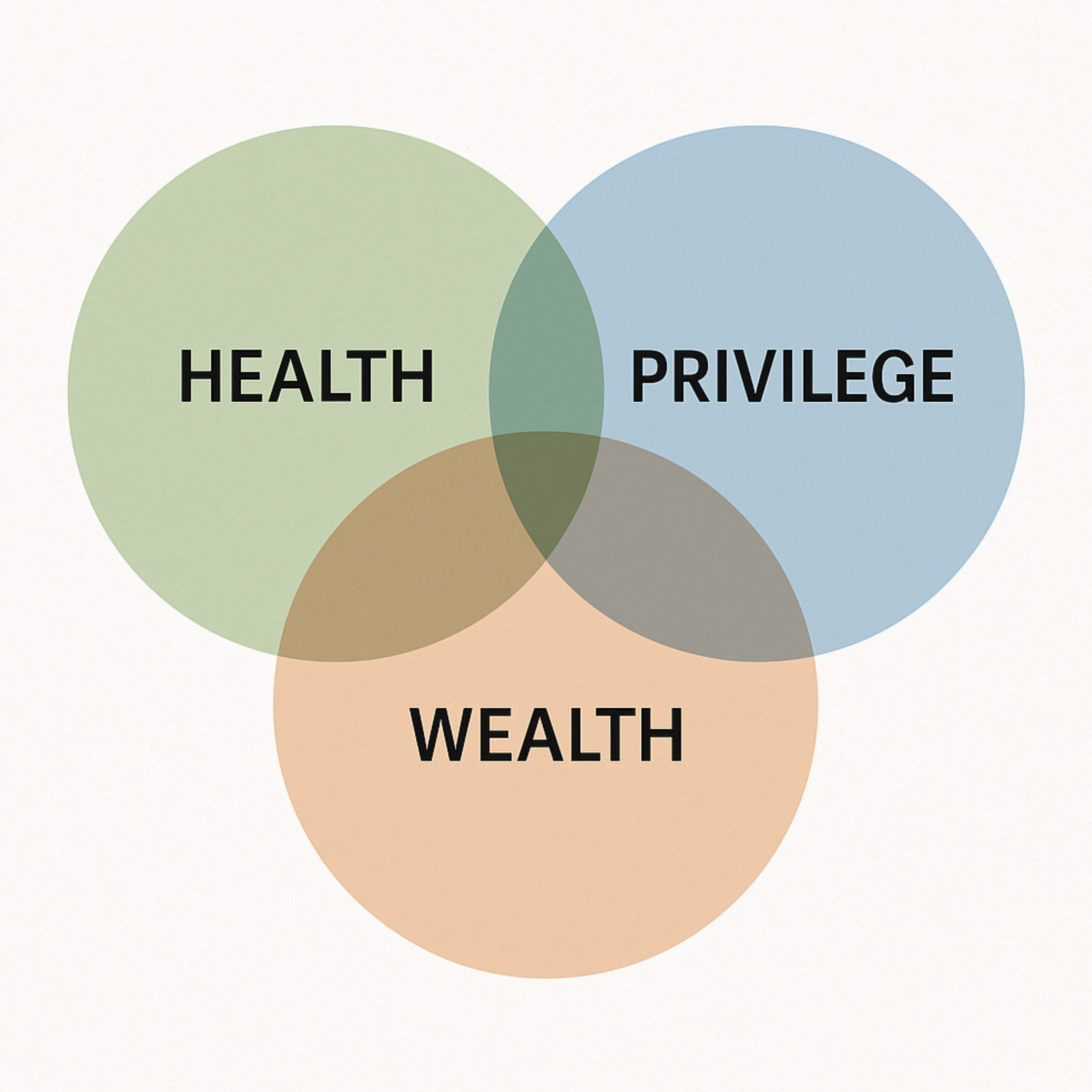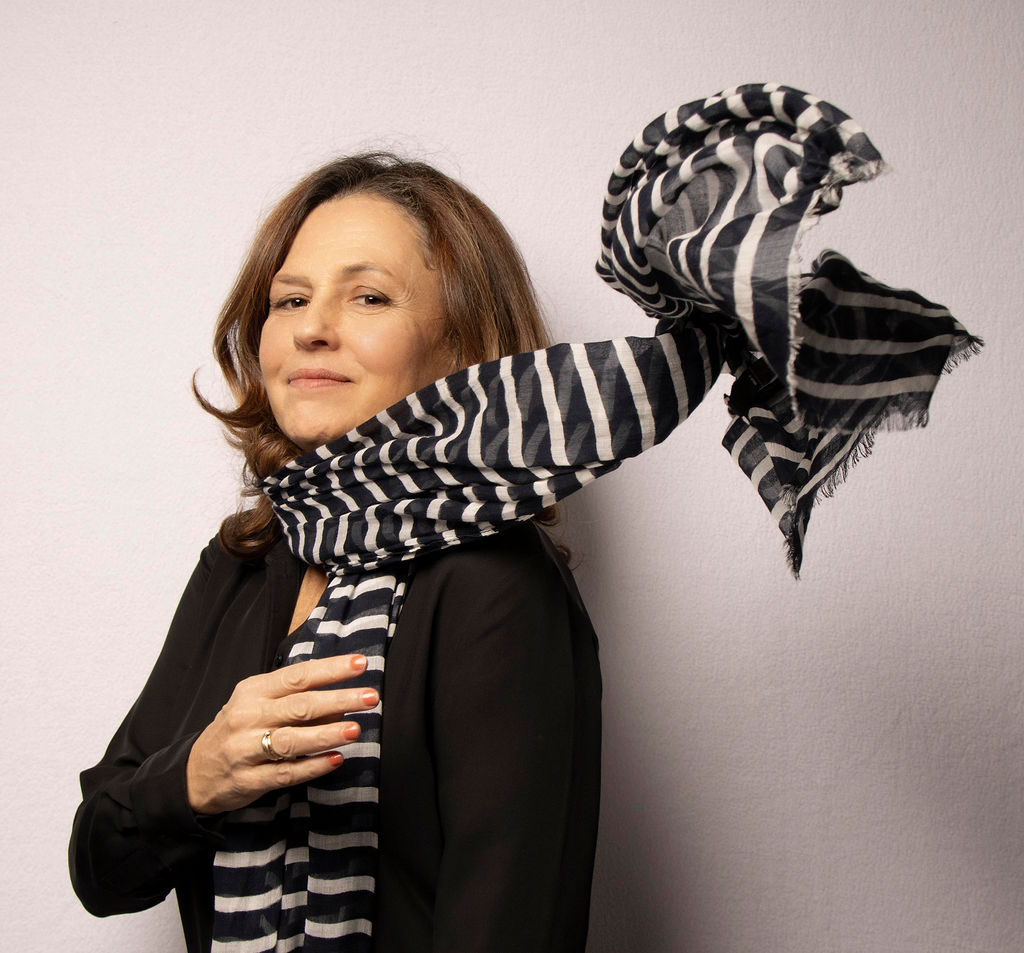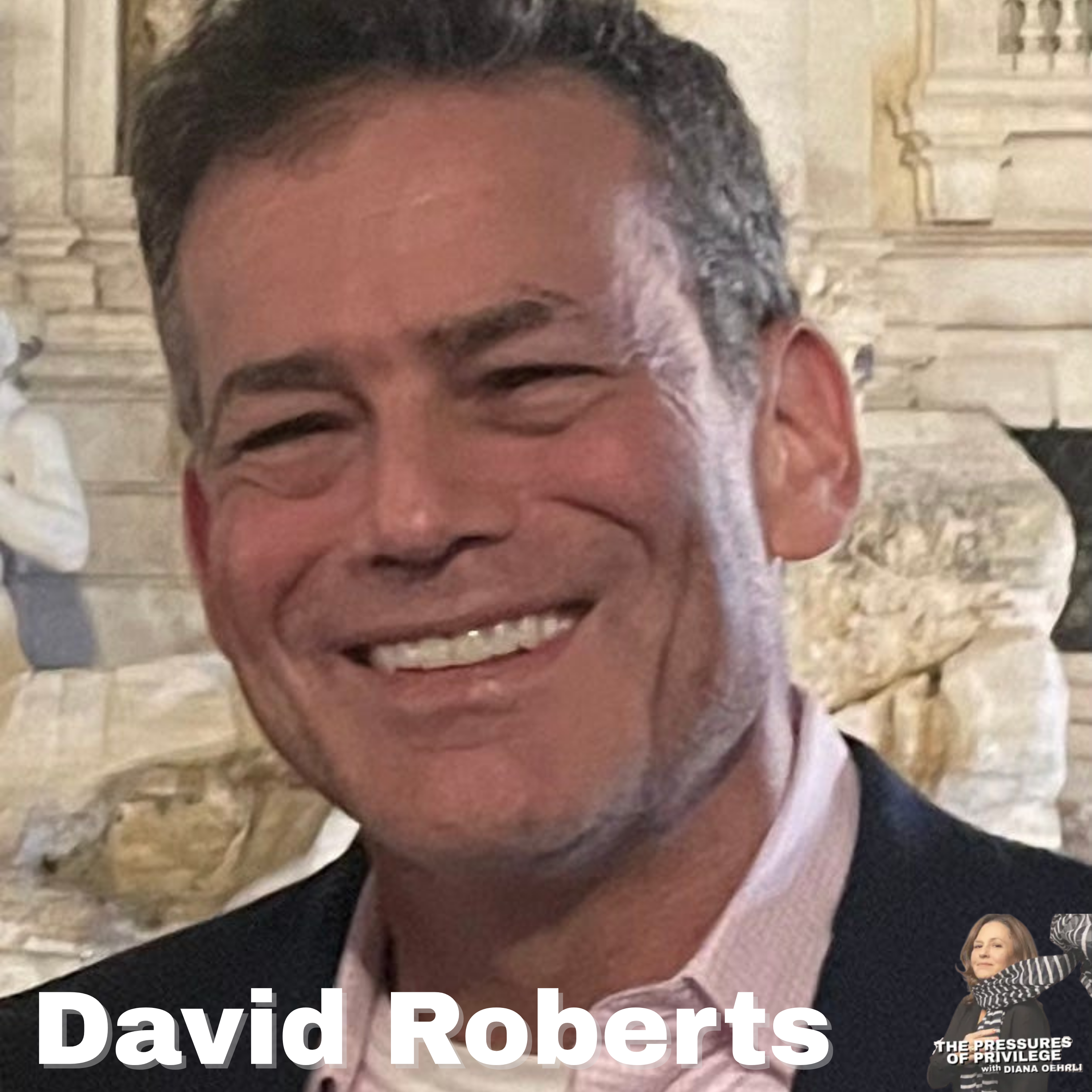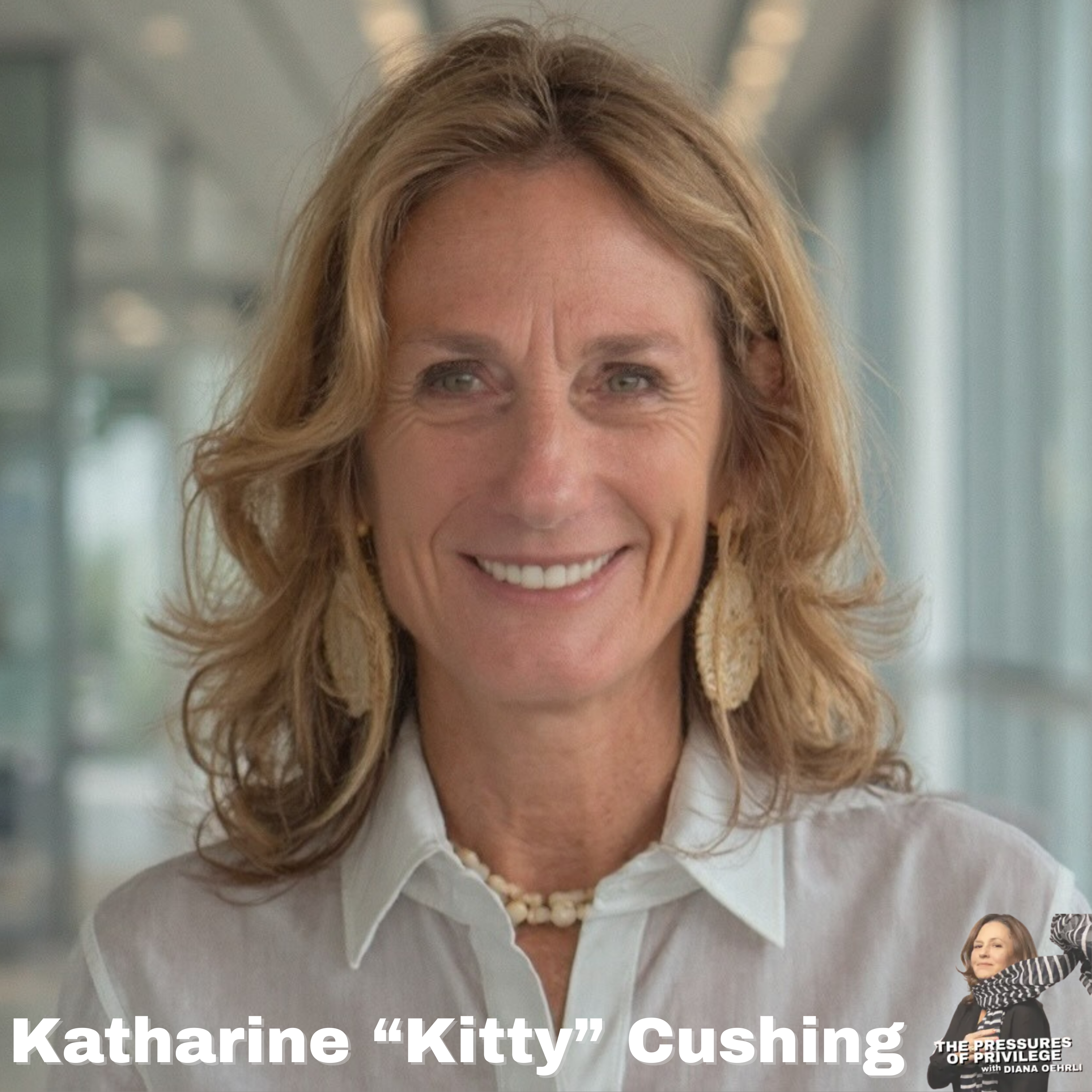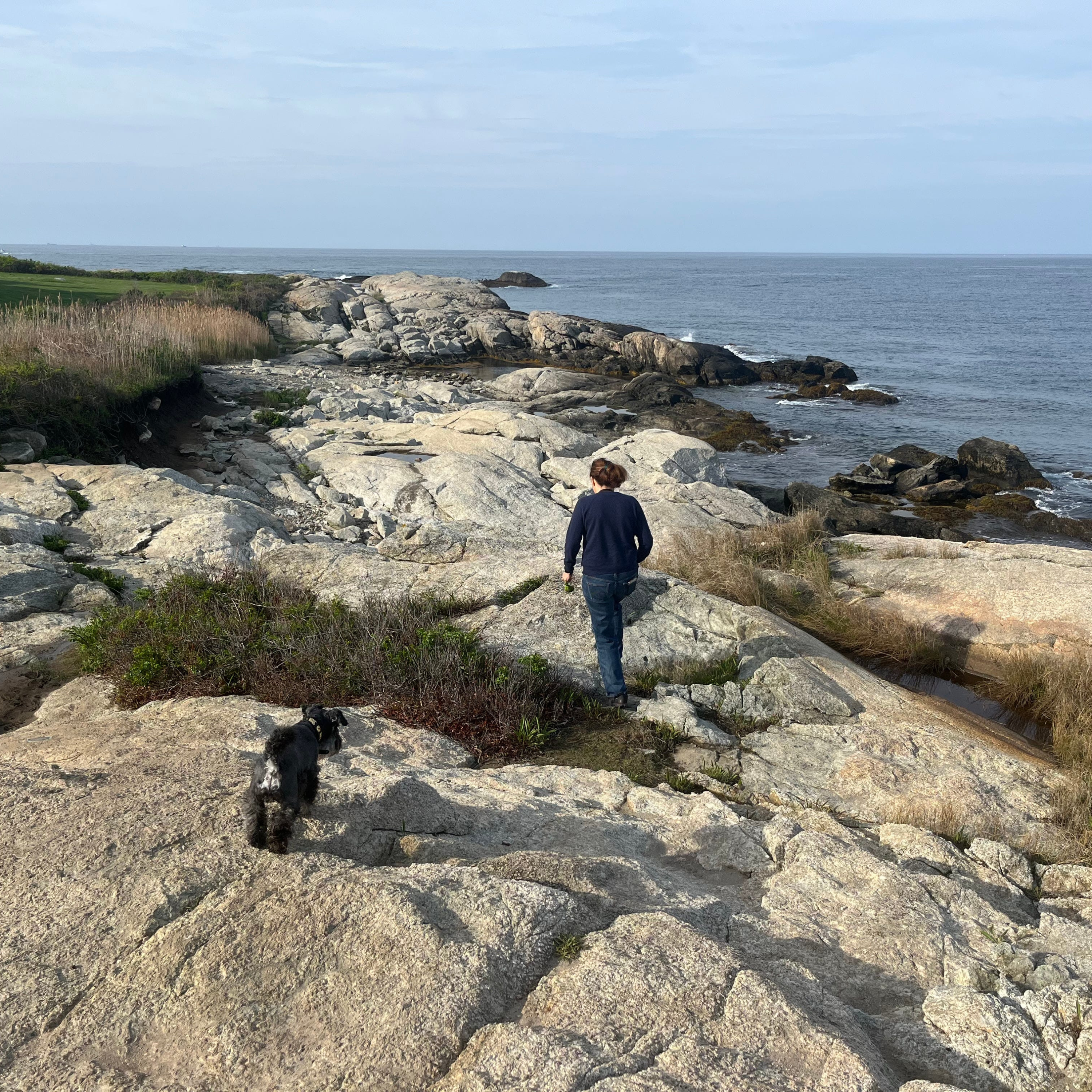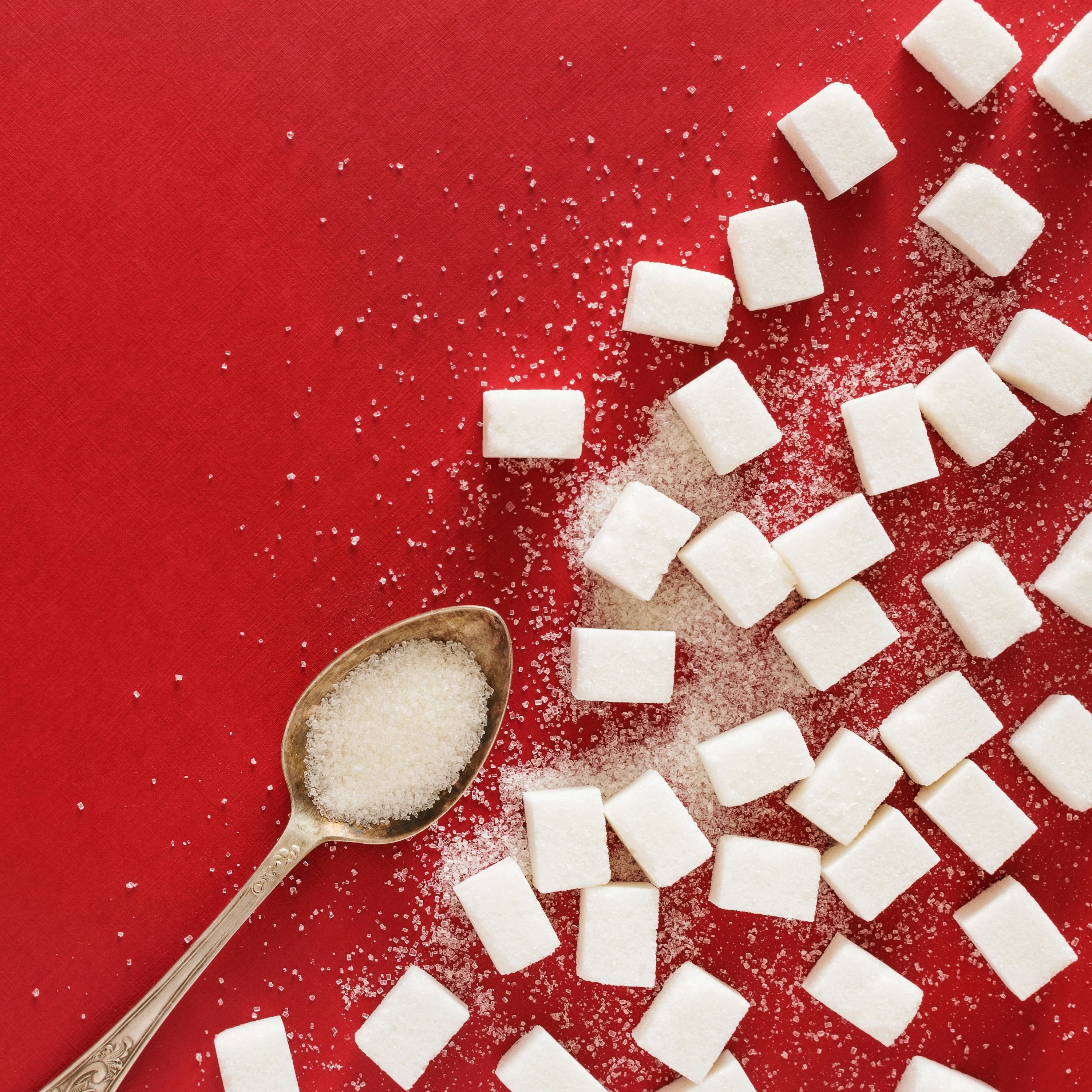Episode Transcript
[00:00:01] Why Money can't buy health A wake up call for America.
[00:00:06] Most people think money keeps you healthy. They think rich people live longer, feel better, and never get sick. They're wrong. A study from Brown University found something shocking. Rich Americans die earlier than the poorest Europeans.
[00:00:19] Think about that for a second. The wealthiest Americans don't even outlive poor people in other countries.
[00:00:24] The lie that's killing us. You can have wealth, health or privilege, but don't assume they come as a set. One doesn't automatically buy you the other. In fact, sometimes one destroys the rest.
[00:00:36] Let's get clear in what these words really mean. Health is a state of complete physical, mental and social well being and not merely the absence of disease or infirmity. World Health Organization wealth means having lots of money and other resources that increase your ability to be healthy, time, mental and physical energy and good routines.
[00:00:55] BJ Fogg's Ability Chain privilege means having advantages or immunities, some earned through effort, others inherited or circumstantial.
[00:01:04] A poor farmer in Sardinia may be healthier than a rich American in a food desert. The WHO and CDC break it down like this. 10 to 30% of your health is genetics. 50% is lifestyle. 20% is environment.
[00:01:18] Only 10% depends on access to healthcare.
[00:01:22] People in Europe enjoy a different kind of privilege. They don't sacrifice their health on the altar of work the way the Americans do. They take long lunch breaks, extended vacations and treat rest as a right, not a luxury. But whenever big money gets involved, things fall apart. I know professionals and multinational companies in Switzerland who work ungodly hours, their health unraveling in the process. One woman I know had to switch to a smaller Swiss company with shorter hours and less pay just to reclaim her life.
[00:01:51] Why the Rich die young America spends more money on healthcare than any country in the world. But we rank 48th in how long people live. Switzerland, where I used to live, ranks fifth.
[00:02:02] Here's what I think is making us sick. Our food is poison. We eat fake food full of chemicals made addictive with a mixture of sugar, fat and salt. High fructose corn syrup should be classified as a Schedule 1 drug.
[00:02:16] The government food pyramid tells us to eat seven to nine servings of grains per day. That's not healthy. It's what makes us fat and diabetic. We worship overwork. We think being stressed and busy means we're successful. But stress kills you faster than most diseases. We're lonely. People don't go to church anymore. Families fall apart. We have no one to lean on. When life gets hard, it's a digital isolation epidemic. Despite more connection, we've never felt more disconnected.
[00:02:42] Big companies lie to us. Food companies pay for studies that make their junk food look healthy. Then the government uses these fake studies to tell us what to eat. Read Ultra Processed People by Chris Fantuliken. For proof on that, we get too much medical care. This sounds crazy, but hear me out. Rich Americans have access to more doctors, more tests and more prescriptions than anyone in the world. But all this care might be killing us.
[00:03:08] When you have money, doctors give you pills for everything stressed. Here's a pill. Can't sleep? Another pill. Feeling sad? More pills. Pretty soon you're taking five different medications that all have side effects.
[00:03:21] The wealthy demand action when they feel bad. They want procedures, tests and treatments. But sometimes the best treatment is to change how you live, not take more medicine. People in blue zones like Okinawa rarely see doctors. They live to 100, not because they have great health care, but because they don't need it.
[00:03:39] Not a blue zone, but I know a Swiss roofer who's never had a vaccine or antibiotic. When he burned his leg with hot tar, he pulled it off his flesh by himself and used honey as an antiseptic. He never took a single pill for it. His body healed itself because it was strong and healthy from years of simple living. Please do not try this at home.
[00:04:01] Here's the kicker. Real health is free. It's not in your bank account. It's in your daily habits.
[00:04:07] Six rules for a long, simple life.
[00:04:10] The best part? Real health doesn't cost much money. Here are the six things that actually keep you healthy, according to lifestyle medicine. 1. Sleep seven to nine hours every night.
[00:04:22] This is free. Turn off your phone and go to bed.
[00:04:27] 2.
[00:04:28] Eat real food. Harvard says to eat whole food. Plant predominant meals.
[00:04:33] That means vegetables, fruits, whole grains, nuts, seeds and beans. I know a guy who lives on $10,000 a year in Costa Rica. He's 58 and more fit than most 30 year olds. He eats whole grain rice, beans, vegetables, fruits and surfs every day. He works just enough to survive.
[00:04:50] 3. Move your body.
[00:04:52] Walk for 150 to 300 minutes a week. That's about 20 to 45 minutes a day. If you want to go harder, do 75 to 150 minutes or 10 to 20 minutes a day of running or biking or any activity at vigorous intensity, meaning you cannot sing or talk while doing it. Also, lift weights twice a week. 4. Manage your stress. Spend 12 to 15 minutes a day doing something calm. Breathe deeply. Meditate, Pray. Sit quietly. This costs nothing.
[00:05:23] 5. Connect with people. Talk to at least one friend or family member every day.
[00:05:28] Real connection, not just texting. Call them. Hug them. Sit together.
[00:05:33] 6. Avoid dangerous stuff. Don't smoke. If you drink, limit it to one drink a day for women, two for men. If you don't drink good.
[00:05:42] These substances cost money and hurt your body.
[00:05:45] When privilege backfires. Here's something people with privilege don't talk about. Privilege comes with shame and guilt. When you have an advantage or immunity, especially if you didn't earn it, feel like a fake. Or conversely, it can make you egotistical and selfish and further isolate you. This fear makes rich people sick in different ways. Dr. Madeline Levine wrote a book called the Price of Privilege. She found that rich teenagers have more anxiety, depression and addiction than poor kids. Materialism, pressure to achieve perfectionism and disconnection are combining to create a perfect storm that is devastating children of privilege and their parents alike. The book says.
[00:06:23] Money doesn't protect you from mental pain. Sometimes it creates it. The young are quietly opting out.
[00:06:31] Something is changing. A recent survey found that Most adults under 35 rank physical and or mental health as their top measure of success.
[00:06:39] Wealth came in fifth place.
[00:06:42] Why?
[00:06:44] The pandemic taught them that being healthy matters more than being rich. They watched their parents burn out working 80 hour weeks. They saw companies lay off loyal workers without warning. Their jobs were deemed non essential.
[00:06:58] You're not doomed by your genes. Last week on my podcast, I mentioned that my grandparents lived to their 90s despite eating meat, cheese and pork fat. A friend assumed the reason was good genetics. I have to break it to you. It isn't. Here's what my grandparents actually did right. They never smoked cigarettes. They moved their bodies all day long. They walked 30 minutes to buy groceries even into their 80s. My grandmother had a vegetable garden and was a waitress and a cleaner who sometimes had to hike up hills to work before the lift opened. My grandma, my grandfather, was a linesman who climbed electrical poles and scythed hay on steep inclines on weekends. They were very social and connected to their community. They lived simple lives without much stress. My grandmother never drank alcohol. She went to church every week. Social connection plus purpose. They slept at least eight hours every night. They spent lots of time just sitting around and relaxing even when they faced terrible hardship. They lost both their sons early to accidents and illness. They had the community support and healthy habits to carry them through.
[00:08:03] See, it wasn't the pork fat that kept them healthy. It was their lifestyle they followed most of the six health rules without even knowing it. The simple truth we keep ignoring. My friend Ryan shakes his head at wealthy people who he knows who buy expensive grounding mats when they could just take off their shoes and walk on grass for free. We make health too complicated. We think we need perfect jeans, expensive supplements and fancy gyms. But the healthiest people in the world live in blue zones, places where people live to 100. Sadly, some of these places are getting destroyed by capitalism. Places like Costa Rica. You don't need wealth to be healthy. You don't need privilege. You don't even need perfect genes. Lifestyle can turn off bad genetic markers. What we need to do Generation X needs to stop feeling guilty and start fixing their mistakes. Stop buying food with ingredient labels your grandmother wouldn't recognize. Walk outside. Breathe fresh air. Hug your friends. Put down the bottle. Success isn't that complicated. A healthy person wants a thousand things. A sick person wants only one thing to feel better.
